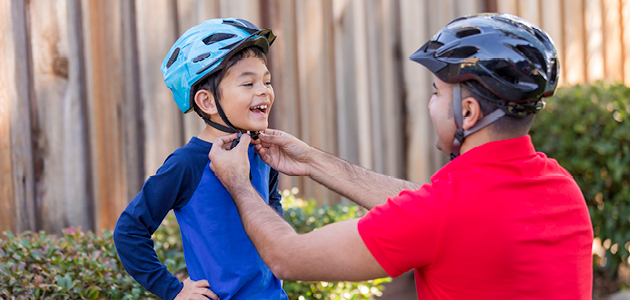There is a lot of misinformation about concussions, so let’s set the record straight: a concussion is a type of traumatic brain injury that can change the way your brain normally functions.1 It’s not a bruise to the brain, and you don’t even have to hit your head to get a concussion.
A direct blow to your head can cause a concussion, but so can a blow to your body that causes your head to move rapidly. For instance, whiplash is an example of an injury that can cause a concussion.
How can you tell if someone has a concussion? The symptoms sometimes don’t appear until hours or days after the injury; they may also be cognitive as well as emotional such as2:
- Headaches
- Dizziness
- Ringing in the ears
- Nausea or vomiting
- Blurred vision
- Drowsiness or fatigue
- Slurred speech
- Loss of consciousness
- Confusion
- Dazed appearance
- Balance problems
- Problems remembering and concentrating
- Light and sound sensitivity
- Irritability
- Nervousness or anxiety
- Sadness or depression
If you suspect you or someone you know has a concussion, it’s important to contact a doctor immediately.3 Most of the time recovery is quick and simple, but the doctor will need to determine the severity of the concussion to decide if in-home observation by a family member is sufficient, or if an overnight hospital stay is warranted.
This isn’t the time to be brave or to brush off symptoms. Remember, a concussion is a brain injury, and you need to treat it seriously.
Concussions often go undiagnosed in seniors, who are prone to falls and may fail to report incidents to doctors. That’s because they may experience symptoms like dizziness, fatigue and sadness and assume it’s just “old age” rather than telltale warning signs of a concussion. Always err on the side of caution.
Treatment
The most important thing to do when you’ve had a concussion is to give your brain time to heal by allowing yourself to physically and mentally rest. Your doctor will probably tell you to avoid general physical exertion until you have no symptoms and to limit activities that require thinking and concentration. That means no sports or vigorous activity and no TV, reading, video games or using a computer.3 Rest means rest!
You may be told to take time off work or school, or to take frequent breaks during the day if you have returned to your daily activities. Always make sure to check with your doctor to determine when it’s okay to resume your normal level of activity and be sure to let your doctor know if something still feels off, even if a significant amount of time has passed since your concussion diagnosis.
Prevention
Sometimes concussions are unavoidable, but there are things you can do to make yourself safer in your home, car and during recreational activities:
- Always wear protective gear during sports and when cycling.
- Wear your seat belt and make sure everyone else in the car is buckled up too.
- Keep your rooms well lit and check your home regularly to make sure there are no tripping hazards, like loose carpet or piles of debris on the floor.
- If you’re a senior, exercise regularly to help improve your balance and prevent falls.
For a quick review and more information about the concussion signs, symptoms and treatment, visit Parachute.
SOURCES
1, 2 https://www.mayoclinic.org/diseases-conditions/concussion/symptoms-causes/syc-20355594
3 https://www.mayoclinic.org/diseases-conditions/concussion/diagnosis-treatment/drc-20355600
Foresters does not provide medical advise. Please consult a physician for any medical advise or to address any health related concerns.




